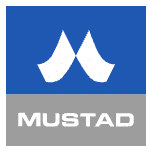Showing the single result

In the early days of the nineteenth century, the industrial scene in Norway was extremely fragmented. The country lacked the necessary infrastructure to allow product specialization.
Most supplies were difficult to obtain so whenever possible they had to be produced domestically. This environment favoured the development of businesses that supplied local communities with everything from food and clothing to tools, schooling and even health services. It was into this pre-industrial world, in the small village of Gjövik, that from 1832 to 1860 Mustad grew to become one of the leading Norwegian suppliers of small metal products like fencing wire, nails, pins, horseshoe nails, shipbuilding nails, paper clips, thumb tacks and an almost endless series of other wire-based products. Business growth and survival depended on both vertical and horizontal integration.
Showing the single result

Our commitment extends beyond selling livestock and agricultural supplies to include providing advice on preventative care for horses, alpacas, sheep, cattle, goats, pigs and poultry.
Monday to Friday – 9 to 5pm
Monday to Friday – 3 to 5pm
Saturday – 9am to 1pm
© 2024 N&W Livestock
For all your Livestock and Agricultural Supplies.
